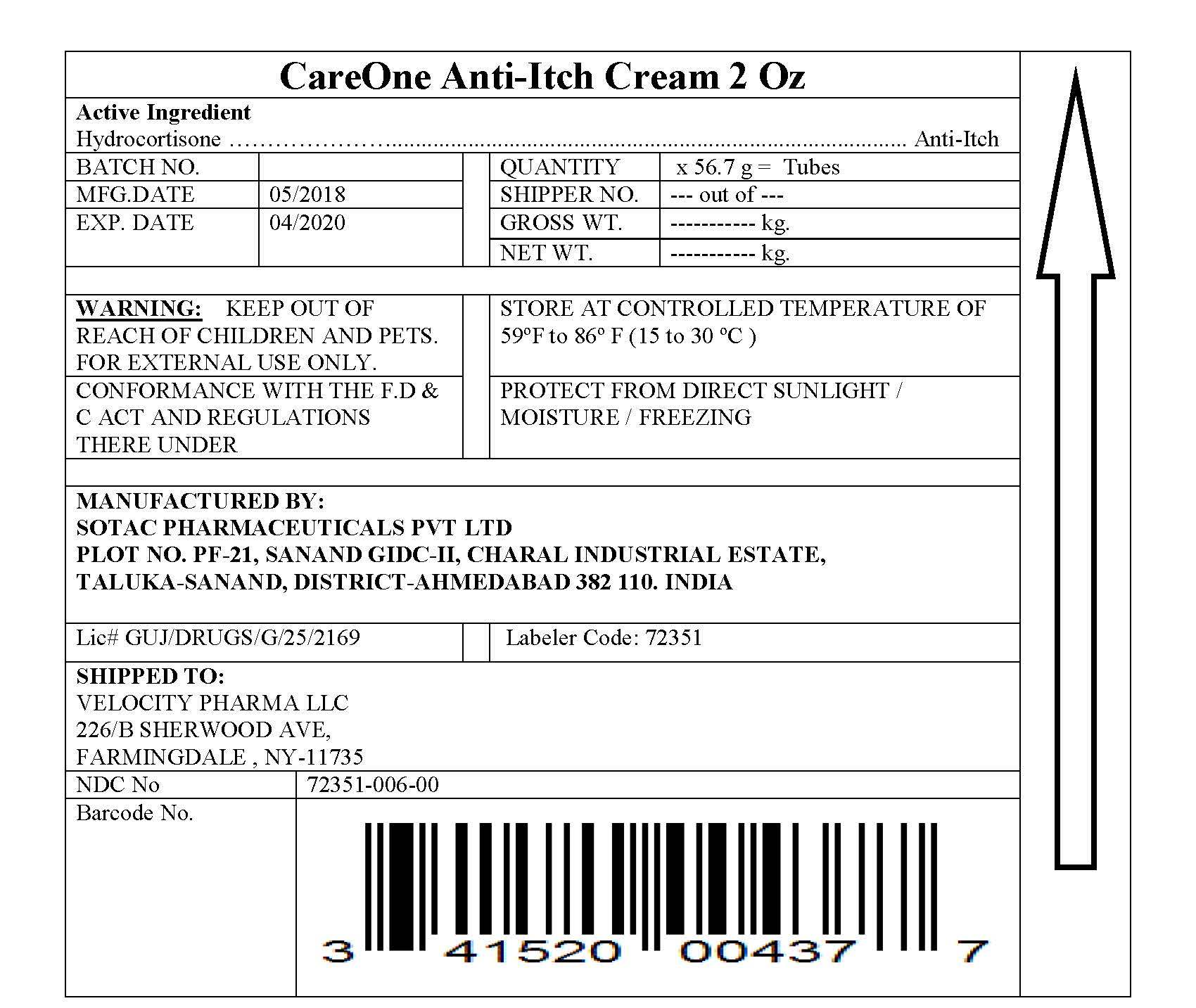Careone Anti Itch | Hydrocortisone Cream while Breastfeeding

What is Careone Anti Itch | Hydrocortisone Cream used for?
Brief: Anti-itch
What are the risk associated with Careone Anti Itch | Hydrocortisone Cream usage while breastfeeding? What precautions shall I take while using it in breastfeeding?

Careone Anti Itch | Hydrocortisone Cream Breastfeeding Analsys
Hydrocortisone while Breastfeeding
SafeCAS Number: 50-23-7
Cortisol is a normal component of breast milk. Although unlikely to achieve harmful levels for the infant, it is preferred the use of an alternative (Methylprednisolone, Prednisolone, Prednisone). Intra-articular administration of depot prednisone derivatives may be a cause of transient decrease of milk production. Eleventh WHO Model List of Essential Drugs 2002: Compatible with breastfeeding.
Careone Anti Itch | Hydrocortisone Cream Breastfeeding Analsys - 2
Hydrocortisone while Breastfeeding
CAS Number: 50-23-7
Hydrocortisone (cortisol) is a normal component of breastmilk that passes from the mother's bloodstream into milk and might have a role in intestinal maturation, the intestinal microbiome, growth, body composition or neurodevelopment, but adequate studies are lacking.[1] Concentrations follow a diurnal rhythm, with the highest concentrations in the morning at about 7:00 am and the lowest concentrations in the late afternoon and evening.[2][3] Cortisol in milk may protect against later infant obesity, especially in girls.[4] Hydrocortisone has not been studied in breastmilk after exogenous administration in pharmacologic amounts. Hydrocortisone in breastmilk is stable at room temperature and during repeated freeze-thaw cycles.[5] Although it is unlikely that dangerous amounts of hydrocortisone would reach the infant, a better studied alternate corticosteroid might be preferred. Maternal use of hydrocortisone as an enema would not be expected to cause any adverse effects in breastfed infants. Local maternal injections, such as for tendinitis, would not be expected to cause any adverse effects in breastfed infants, but might occasionally cause temporary loss of milk supply. See also Hydrocortisone, Topical. Hydrocortisone concentrations in breastmilk are not affected by storage for 36 hours at room temperature, during multiple freeze-thaw cycles, nor Holder pasteurization (62.5 degrees C for 30 minutes).[5][6]
What should I do if already breastfed my kid after using Careone Anti Itch | Hydrocortisone Cream?
As usage of Careone Anti Itch | Hydrocortisone Cream is mostly safe while breastfeeding hence there should not be any concern. In case of any change in behavior or health of your baby you should inform your health care provider about usage of Careone Anti Itch | Hydrocortisone Cream else no further action is required.
I am nursing mother and my doctor has suggested me to use Careone Anti Itch | Hydrocortisone Cream, is it safe?
Usage of Careone Anti Itch | Hydrocortisone Cream is safe for nursing mothers and baby, No worries.
If I am using Careone Anti Itch | Hydrocortisone Cream, will my baby need extra monitoring?
No
Who can I talk to if I have questions about usage of Careone Anti Itch | Hydrocortisone Cream in breastfeeding?
US
National Womens Health and Breastfeeding Helpline: 800-994-9662 (TDD 888-220-5446) 9 a.m. and 6 p.m. ET, Monday through Friday
UK
National Breastfeeding Helpline: 0300-100-0212 9.30am to 9.30pm, daily
Association of Breastfeeding Mothers: 0300-330-5453
La Leche League: 0345-120-2918
The Breastfeeding Network supporter line in Bengali and Sylheti: 0300-456-2421
National Childbirth Trust (NCT): 0300-330-0700
Australia
National Breastfeeding Helpline: 1800-686-268 24 hours a day, 7 days a week
Canada
Telehealth Ontario for breastfeeding: 1-866-797-0000 24 hours a day, 7 days a week
